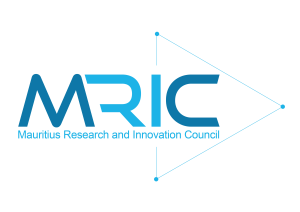
About this course
This course is the first of a series within the Building Capacity programme of the NEREUS project funded by the United Nations Development Programme (UNDP) Ocean Innovation Challenge (https://oceaninnovationchallenge.org/).
The NEREUS project, led by the Surrey Space Centre in collaboration with the Mauritius Research and Innovation Council, is developing a tool for the detection of anomalies in satellite data that could be related directly to Illegal, Unreported and Unregulated (IUU) fishing activities. The satellite data that will be used in the project will mainly be Synthetic Aperture Radar (SAR) data and self-reporting data like the Automatic Identification System (AIS) data.
Examples of the outputs of the monitoring tool will be products identifying areas where ships frequently do not report their presence over some period of time. This information can be used by authorities to make informed decisions and contribute towards effective Maritime Domain Awareness. When this information will be further combined with ancillary data, like borders of Exclusive Economic Zones (EEZ) and Marine Protected Areas (MPAs), record of authorized fishing vessels etc., the products can support the detection of IUU fishing activities with obvious environmental, economic and societal benefits for local communities.
By the end of the NEREUS project it would be of the utmost importance to have in Mauritius people trained to the use of satellite data and to the monitoring tool so that benefits can continue beyond the duration of the project. At this purpose, 3 courses will be run by the Surrey Space Centre to build such capacity.
Who is the training for? The training is for anyone interested in Remote Sensing and Earth Observation, with particular application to the maritime domain. Local authorities, universities, research centres, UNDP offices and everyone responsible for safety at sea, ocean health, law enforcement, maritime policies, EEZ and MPAs preservation is invited to register.
The NEREUS project is gender-sensitive and implements a participatory approach inspired by gender equality in which women are fully beneficiaries of the project as much as men. This applies to the training part as well and we encourage and support women participation.
We encourage the largest possible participation but, should we require to limit attendance for logistic reasons, we would prioritize attendees from areas and organizations directly involved with the Nereus project.
What will the training cover? The training will provide an introduction to modern satellite radar imagery and interpretation, including distortions and artefacts typical of such space data. Ship detection with Synthetic Aperture Radar (SAR) images will constitute the core of the training and will be presented using open-source data from the Copernicus constellation and the SNAP software.
What are the benefits for me in attending? By attending you will learn about the most advanced space technologies and techniques to monitor some of the Earth resources, in particular the oceans. The training will be shaped around the problem of Illegal, Unreported and Unregulated fishing activities and how space data can help detecting such activities. It will benefit a diverse audience with the common imperative goal of saving our oceans. For example, if your work, research or interests are related to the monitoring of fishing activities and checking of vessels compliance, you would get an understanding about how such monitoring can be carried out more efficiently with space data. If your work is in preservation of oceans and fish species, you will have an opportunity to understand the positive environmental impact that Earth Observation can bring as with a persistent monitoring of EEZ and MPAs we can discourage illegal fishing and restore fish stocks.

